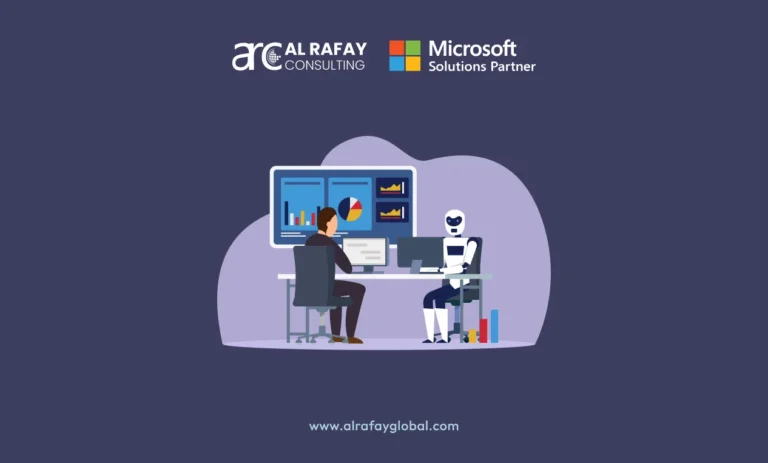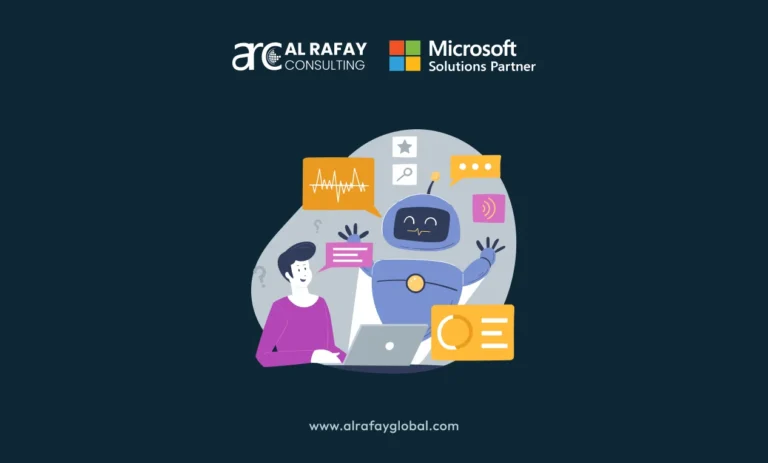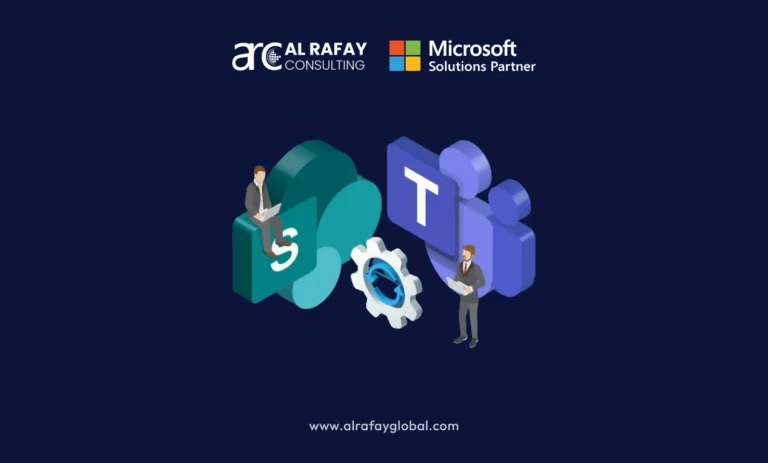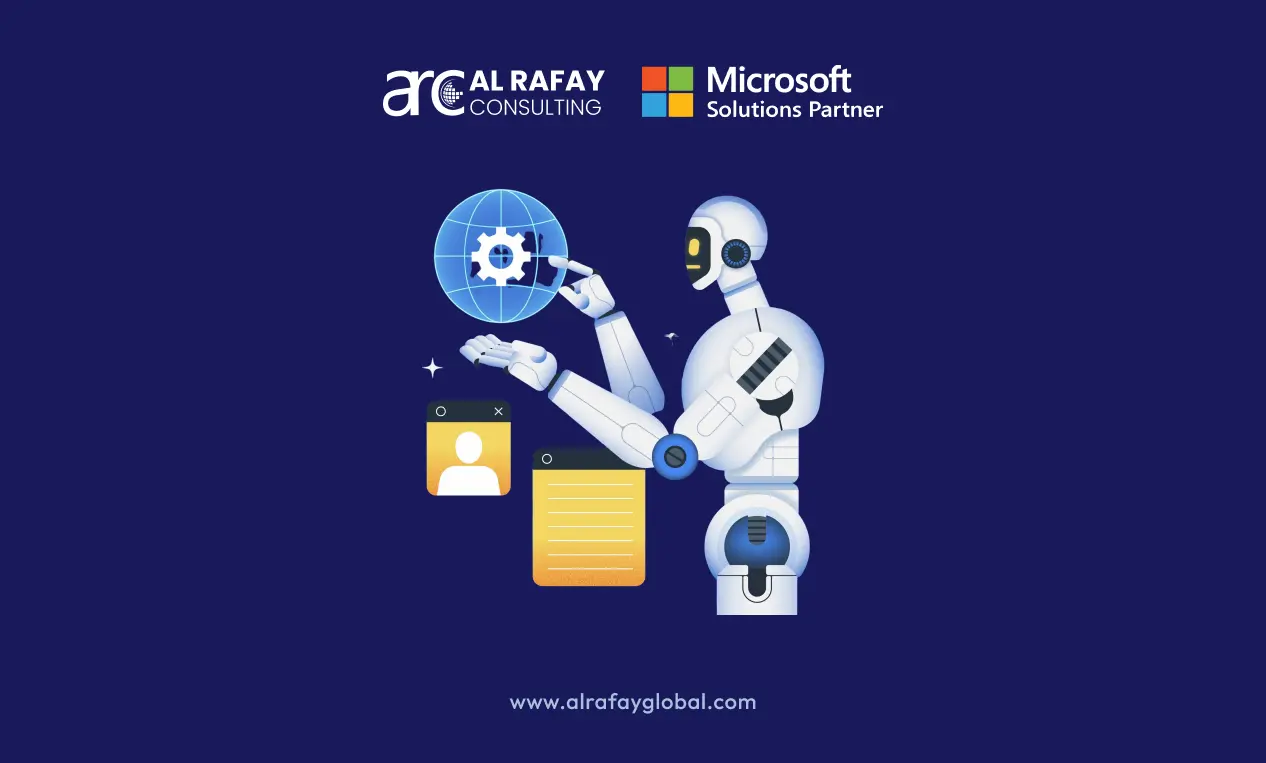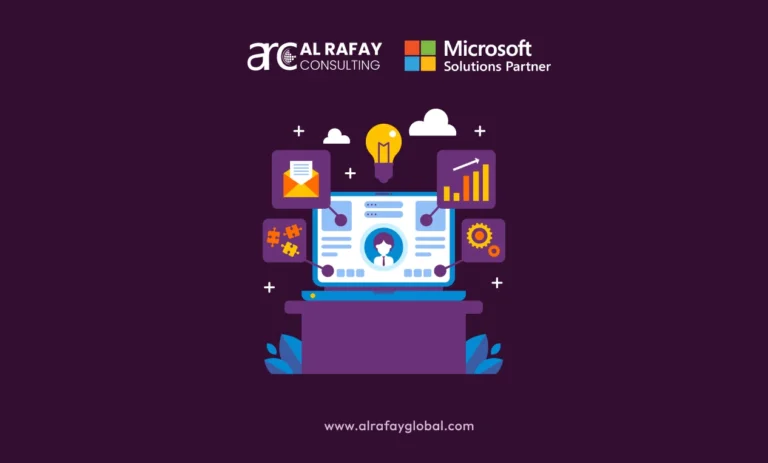In today’s rapidly evolving digital landscape, businesses are constantly seeking ways to improve efficiency, enhance customer experiences, and remain competitive. One of the most significant drivers of this change is Artificial Intelligence (AI) or enterprise AI. As a key enabler of digital transformation, AI is fundamentally reshaping industries by automating tasks, analyzing large datasets, and enabling faster data-driven decisions. According to the Fortune Business Insights report, the global digital transformation market is projected to grow from USD 12.35 trillion by 2032.
AI plays a pivotal role in digital transformation by enabling businesses to automate routine tasks, enhance data analytics, and improve decision-making processes. AI-driven solutions, such as chatbots, robotic process automation (RPA), and predictive analytics, empower businesses to streamline their operations, reduce costs, and create personalized customer experiences. Together, AI and digital transformation are ushering in a new era of innovation and operational excellence across multiple industries.
Let’s discuss the concept of AI and digital transformation in a bit more detail.
The Role of AI in Digital Transformation
AI is a key catalyst in driving digital transformation across businesses by automating tasks, improving decision-making, enhancing customer experiences, and optimizing operations. Here’s how AI is transforming various aspects of business processes.
Automation of Processes
One of the most significant contributions of AI to digital transformation is the automation of repetitive and routine tasks. By using technologies like Robotic Process Automation (RPA), AI allows businesses to automate time-consuming processes such as data entry, invoice processing, and customer onboarding. This frees up human resources to focus on higher-level strategic initiatives. According to a report by Future Market Insights the robotic process automation market revenue is expected to reach US$ 24,633.4 Million by 2033
For example:
Chatbots and AI-powered virtual assistants handle routine customer inquiries, reducing the need for human intervention.
AI-driven customer service platforms like Zendesk use natural language processing to resolve common customer issues autonomously.
Data Analytics and Decision-Making
AI’s ability to analyze vast amounts of data and derive actionable insights is unparalleled. Businesses today generate massive datasets from customer interactions, market trends, and internal processes. AI systems leverage this data to make predictive analytics and improve decision-making.
Key applications include:
Predictive analytics, helps businesses forecast future trends based on historical data.
Machine learning algorithms that recognize patterns and anomalies, enable companies to make data-driven decisions in real-time.
Enhanced Customer Experience
AI is revolutionizing the way businesses interact with their customers by offering personalized, efficient, and timely responses. Whether through recommendation engines used by platforms like Amazon and Netflix or AI-driven customer support systems, AI tailors interactions to individual preferences, ensuring a better customer experience.
Examples include:
AI-powered recommendation systems that suggest products or services based on past behavior and preferences.
Virtual assistants like Google Assistant or Siri, provide on-demand customer support and personalized responses.
Optimization of Operations
AI optimizes operations by enabling real-time monitoring, predictive maintenance, and resource allocation. In supply chain management, AI can predict demand trends, optimize routing, and manage logistics more efficiently. AI-driven predictive maintenance uses sensors and historical data to forecast equipment failures, allowing companies to fix issues before they cause downtime. This approach is widely adopted in manufacturing, reducing maintenance costs and improving operational efficiency.
A prime example of AI’s operational impact is Amazon’s supply chain. The company uses AI to optimize inventory management, predict demand, and ensure timely delivery. This has allowed Amazon to maintain a highly efficient global logistics network while continually meeting customer expectations.
AI Contribution to Operations | Benefits |
Predictive Maintenance | Reduced downtime, lower maintenance costs |
Real-time Monitoring | Improved operational visibility |
Resource Allocation Optimization | More efficient use of resources, cost savings |
Real-world Use Cases of AI in Digital Transformation
AI is being applied across various industries to create more efficient processes, enhance customer engagement, and improve operational performance. Here are some real-world use cases of AI’s role in digital transformation.
Next-Gen AI Digital Assistants and Chatbots
AI digital assistants and chatbots have become critical tools for businesses to interact with customers 24/7. AI chatbots are deployed on websites, social media platforms, and apps to answer queries, provide product recommendations, and resolve issues in real-time. Natural language processing and machine learning allow these bots to improve their responses and offer personalized customer experiences over time.
AI for Data Collection and Predictive Analytics
AI enables businesses to collect, process, and analyze vast amounts of data in ways that were not possible before. Predictive analytics, powered by AI, is used to anticipate customer behavior, market trends, and even operational risks. For example, AI algorithms are widely used in e-commerce to predict purchasing patterns and suggest relevant products to users.
Cybersecurity and Fraud Detection
AI plays a critical role in modern cybersecurity by identifying potential threats and anomalies faster than traditional systems. Machine learning algorithms continuously learn from new data, improving their ability to detect fraud, security breaches, or malware attacks. For example, Mastercard employs AI-driven algorithms to detect unusual transactions and prevent fraud in real-time.
Key Industries Being Transformed by AI
AI is transforming industries in profound ways, from healthcare and finance to retail and transportation. Below are some of the industries where AI is having the most significant impact.
Healthcare
AI’s potential in healthcare is revolutionary, from diagnostics to personalized treatment. Medical imaging, for example, leverages deep learning algorithms to detect abnormalities in X-rays, CT scans, and MRIs with incredible accuracy. AI tools assist doctors in diagnosing conditions like cancer at early stages, increasing the chances of successful treatment.
AI is also playing a vital role in drug discovery by analyzing biological data to predict how potential drug candidates will interact with diseases, significantly reducing the time it takes to bring new treatments to market. IBM Watson, a pioneer in AI for healthcare, uses AI to help doctors make more informed treatment decisions by analyzing vast datasets of clinical research and patient data.
AI in Healthcare | Use Case |
Medical Imaging | Early detection of diseases through imaging |
Personalized Treatment | Custom treatment plans based on patient data |
Drug Discovery | AI accelerates drug research and development |
Finance
The financial sector has embraced AI to enhance fraud detection, automate risk assessments, and improve customer service. AI algorithms in algorithmic trading have revolutionized financial markets by enabling faster and more accurate trading decisions. Chatbots in banking provide customers with quick, automated financial advice and support.
Banks like HSBC and JP Morgan use AI-driven systems to evaluate loan applications by analyzing vast datasets that assess a borrower’s creditworthiness faster and more accurately than traditional methods.
Retail
AI is transforming the retail industry through innovations in inventory management, personalized marketing, and customer behavior analysis. AI systems predict demand, optimize stock levels, and enhance customer loyalty programs through personalized recommendations.
Online retailers like Amazon leverage AI-driven dynamic pricing models to adjust product prices in real-time based on demand, inventory levels, and competitor pricing, ensuring maximum profitability.
Manufacturing
In manufacturing, AI is enhancing predictive maintenance, process automation, and quality control. AI systems monitor equipment in real-time, predicting when maintenance is required, reducing downtime, and improving production efficiency.
Companies like Siemens have implemented AI-enhanced production lines that optimize operations, predict machine failures, and increase production output with minimal human intervention.
Transportation and Logistics
AI is shaping the future of autonomous vehicles, route optimization, and demand forecasting in transportation and logistics. AI-driven fleet management systems optimize delivery routes, reduce fuel consumption, and enhance last-mile delivery services.
Future of AI in Autonomous Vehicles
Companies like Tesla and Waymo are developing AI-powered autonomous driving systems that can navigate complex urban environments, revolutionizing personal transportation and logistics industries.
The Benefits of AI in Digital Transformation
As businesses integrate AI into their digital transformation strategies, they are realizing numerous benefits, ranging from increased efficiency and cost savings to scalability and innovation.
Increased Efficiency and Productivity
AI-driven automation allows businesses to operate more efficiently by reducing the time spent on routine tasks and minimizing human error. For example, AI-powered supply chain management systems optimize inventory, predict demand, and ensure smooth operations across the entire supply chain.
Cost Savings
AI reduces operational costs by streamlining processes and minimizing the need for manual labor. In the manufacturing industry, predictive maintenance systems lower costs by preventing costly downtime and extending the life of equipment. AI in customer service, such as chatbots, reduces the need for large support teams, significantly cutting overhead expenses.
Scalability and Flexibility
AI-driven solutions enable businesses to scale quickly in response to market demand. For instance, cloud-based AI platforms provide businesses with on-demand computing power, allowing them to process massive datasets and deploy AI models across multiple regions.
Improved Innovation
AI fosters a culture of innovation by introducing new methods for solving traditional business challenges. In product development, AI helps companies design and test new products faster by simulating different scenarios, predicting market trends, and analyzing customer preferences.
Challenges of AI in Digital Transformation
Despite its numerous benefits, AI implementation in digital transformation comes with several challenges, including data privacy concerns, ethical considerations, integration complexities, and workforce impact.
Data Privacy and Security
AI systems process large volumes of sensitive data, raising concerns about privacy and security. Businesses need to implement robust cybersecurity measures to protect this data from breaches and ensure compliance with regulations like GDPR.
Ethical Considerations
AI has the potential for bias in decision-making, leading to ethical dilemmas. For instance, AI-driven recruitment systems may inadvertently favor certain demographics over others. Addressing these biases requires creating ethical AI guidelines and ensuring transparency in AI decision-making processes.
Integration with Legacy Systems
One of the major challenges in adopting AI is integrating it with existing legacy systems. The transition from traditional infrastructure to AI-enabled platforms can be costly and complex, often requiring a complete overhaul of existing technology.
Skill Gaps and Workforce Impact
AI’s rapid adoption can lead to concerns about job displacement and workforce readiness. Employees need to be reskilled and upskilled to work alongside AI systems. Businesses must focus on AI education and creating new roles that complement AI-driven processes.
AI Adoption Strategies for Businesses
Successfully implementing AI within a digital transformation framework requires a well-thought-out strategy. The complexity and potential of AI mean businesses need a structured approach to integrate AI technologies effectively. Below are several best practices that can guide organizations on their journey to AI adoption.
Starting with a Clear AI Vision
The first step in AI adoption is developing a clear AI vision aligned with the company’s overarching business strategy. This means identifying where AI can bring the most value and defining strategic goals for AI initiatives. Businesses need to articulate specific use cases and measurable outcomes, such as increased operational efficiency, improved customer experience, or revenue growth. Defining key performance indicators (KPIs) early on is crucial to measure the success of AI projects. Without a clear vision, AI initiatives can become scattered, leading to wasted resources and unclear results.
Pilot Projects and Gradual Scaling
Launching a full-scale AI project immediately can be risky, as AI technologies often require adjustments and refinements before reaching optimal performance. A more prudent approach is starting with pilot projects. These are small-scale, limited AI implementations that allow businesses to test the waters. Pilot projects can focus on specific areas like customer service automation or predictive maintenance in manufacturing. The results of these projects help identify strengths, limitations, and areas for improvement, providing invaluable insights before scaling AI across the organization. Once success is demonstrated on a small scale, AI initiatives can be expanded gradually.
Fostering a Data-Driven Culture
For AI to deliver its full potential, businesses must cultivate a data-driven culture. This means ensuring that employees at all levels understand the value of data and are trained to use AI tools effectively. Investing in data literacy programs helps employees interpret AI-generated insights, making them capable of leveraging AI for decision-making. Cross-functional collaboration is also key, as data-driven insights should inform decisions across marketing, operations, HR, and finance.
Collaboration with AI Experts and Partners
Collaborating with external experts can significantly accelerate AI adoption. By working with AI vendors, consultants, and academic institutions, businesses can leverage outside expertise without needing to develop AI capabilities in-house. Many companies also turn to AI-as-a-Service (AIaaS) platforms, which provide pre-built models, cloud-based solutions, and easy integration with existing systems. This approach reduces the complexity and cost of AI adoption, helping businesses scale their AI efforts more efficiently.
The Future of AI in Digital Transformation
As Artificial Intelligence (AI) continues to advance, it will introduce cutting-edge trends, opportunities, and challenges that will fundamentally reshape digital transformation across industries. These emerging AI capabilities are not just enhancing current systems but are laying the groundwork for more sophisticated, intelligent, and autonomous technologies that will further streamline business processes and create immersive experiences.
Emerging AI Trends
The evolution of AI technologies like deep learning, reinforcement learning, and generative AI will be instrumental in the future of digital transformation. These advanced technologies will enable systems to learn autonomously and improve over time without human intervention. Deep learning algorithms, which mimic the human brain’s neural networks, are being used to tackle highly complex problems in areas like natural language processing and computer vision. Meanwhile, reinforcement learning allows AI systems to learn by trial and error, making them ideal for tasks requiring decision-making in dynamic environments, such as autonomous driving and robotics. Generative AI (like OpenAI’s GPT models) will further push the boundaries by enabling AI to create original content, whether it’s generating new designs, writing software code, or crafting digital art. According to a 2023 McKinsey survey, 60 % of organizations with reported AI adoption are using Gen AI in at least one of their functions.
AI in the Metaverse and Beyond
As we move toward the development of the Metaverse—a shared virtual space blending the digital and physical worlds—AI will play a central role in shaping this immersive digital environment. AI-driven avatars, virtual assistants, and real-time analytics will enhance user interactions, making virtual and augmented reality (VR/AR) experiences more personalized and intuitive. For example, AI can create hyper-realistic avatars that adapt to users’ preferences and even assist with decision-making in the virtual world. The Metaverse will rely on AI to facilitate seamless communication, entertainment, and commerce.
AI and Sustainability
AI’s role in sustainability is expected to grow significantly as businesses focus on reducing their environmental impact. AI technologies will optimize energy consumption, improve resource management, and drive innovations in climate change mitigation. For instance, AI-powered systems can analyze vast amounts of data from IoT devices to improve energy efficiency in smart cities, reduce waste, and create sustainable supply chains. AI will also play a role in renewable energy by predicting energy output, optimizing grid distribution, and ensuring more efficient energy use across industries.
Conclusion
AI drives digital transformation by streamlining operations, enhancing decision-making, and personalizing customer experiences. While advancing technologies offer new opportunities for innovation, businesses must address challenges like data privacy, ethics, and workforce readiness. Organizations that embrace AI now will be better positioned to lead in the future, ensuring competitiveness in a digital world.
If your organization requires consultation on enterprise AI projects, connect with our Microsoft-certified AI experts at Al Rafay Consulting.

